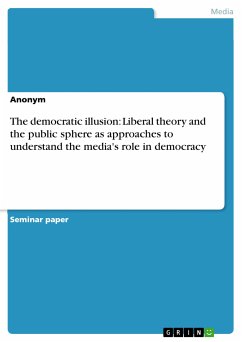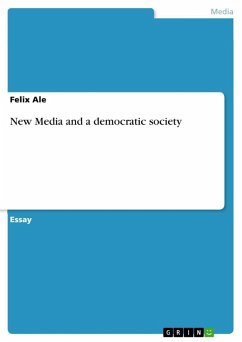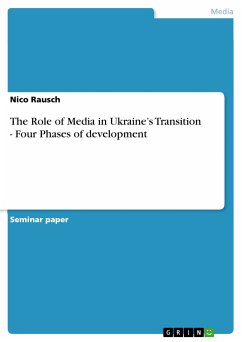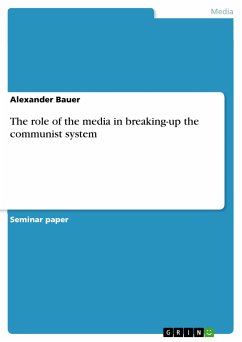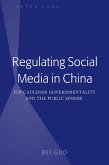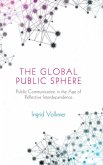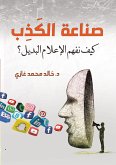Seminar paper from the year 2003 in the subject Communications - Media and Politics, Politic Communications, grade: A-80, University of Canterbury (Department of Mass Communication and Journalism), course: Political Economy of Communication, language: English, abstract: The role of the media in democracies is to connect decision makers and voters. The media should thus fulfil a basic position and serve as a foundation for the democratic process. In Rich Media, Poor Democracy R.W. McChesney argues that the media, far from providing a bedrock for freedom and democracy, have become a significant antidemocratic force in the United States and, to varying degrees, worldwide. The variables that have caused this development are the corporate media explosion and the corresponding implosion of public life and culture. M.C. Miller (2001) even states that "the generated monoculture, endlessly and noisily triumphant, offers, by and large, a lot of nothing, whether packaged as 'the news' or 'entertainment'". Whereas the major beneficiaries are wealthy investors, advertisers and the few leading media conglomerates, this concentrated corporate control is disastrous for any notion of participatory democracy. The text contrasts the two fundamentally different positions of the media's role in democracy, which are the media in the desirable position as provider of a public sphere in a Habermasian sense, and the media's role in a liberal theory understanding. By focussing largely on the US media, the prototype of privatization, section two names the most influential corporate powers and presents the influence they exert. Following the description of their independence from any controlling instances, such as the FCC, the text finally points out alternatives which are basically derived from D.W. Mazzocco.
Dieser Download kann aus rechtlichen Gründen nur mit Rechnungsadresse in A, B, BG, CY, CZ, D, DK, EW, E, FIN, F, GR, HR, H, IRL, I, LT, L, LR, M, NL, PL, P, R, S, SLO, SK ausgeliefert werden.

